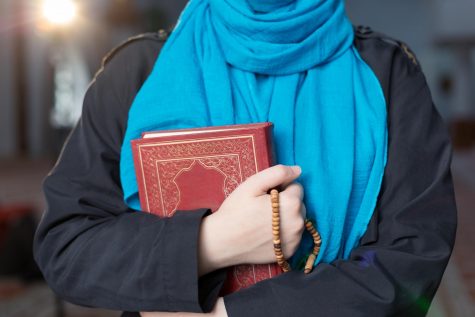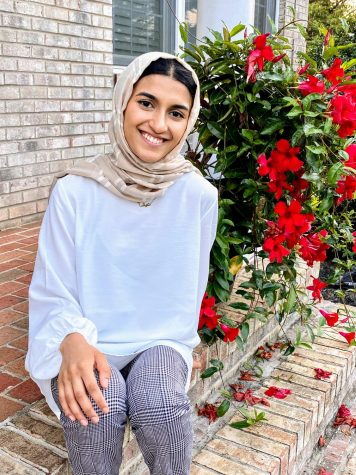Muslim Students Begin Fasting for the Holy Month of Ramadan
April 14, 2021

The fridge is loaded with Costco breakfast items. My list of spiritual goals is stored on the “Notes” app within my iPhone. My mind is already wandering to the foods that I will dig into come sunset each evening (guilty).
Like the 1.8 billion Muslims around the world, my family will begin observing the holy month of Ramadan this week. Ramadan is one of the five main requirements of Islam and is prescribed in the Holy Quran for all individuals who are physically able. It is a time when followers of Islam engage in increased prayer, give charity, make an effort to fix their moral flaws, and abstain from eating and drinking from sunrise to sunset for the month-long duration.
The Holy Prophet of Islam, Muhammad (May peace be upon him), is noted to have been revealed the first verses of the Holy Quran by the Angel Gabriel during the month of Ramadan in a cave named “Hira.” The Holy Prophet would break his fast with the date fruit, which is in abundance in the sweltering deserts of Arabia.
Interestingly, fasting for the sake of spiritual development is not unique to Islam. The Quran says “O ye who believe! Fasting is prescribed for you, as it was prescribed for those before you.” As such, followers of Judaism fast during Yom Kippur and many Christians fast during Lent to emulate the traditions of Prophet Jesus. Fasting is also practiced by followers of Hinduism and Buddhism.
Imam Frasat Ahmad, a religious leader at Baitur Rahman Mosque in Silver Spring, Maryland, further describes the purpose behind the religious observance.
“The Holy Qur’an instructs us to fast so ‘That you may become righteous.’ (Ch.2: V.184)” Ahmad explains. “The word ‘righteous’ has been used in the Holy Quran to give three meanings. Firstly, in the sense of evading melancholy. Secondly, in the sense of saving oneself from sin and thirdly, in the sense of attaining higher levels of spirituality. Hence, through this word, [God] the Almighty has described three wisdoms of fasting.”
Despite the moral benefits that come with it, fasting during the month of Ramadan is not always easy. Maheen Gul, a Muslim student in her second semester at HCC agrees. Gul began fasting around the age of 10 or 11 years old. She admits that, “It is a challenge to attend school while fasting [and to] concentrate on an empty stomach.” However, she explains that it becomes easier over time and she reminds herself that fasting helps a person to “relate to those who might not have all the luxuries (such as food, water, clothing, housing, etc.) that you do.”
This will be our second Ramadan during the COVID-19 pandemic, and there are some major changes to our normal holiday observances. In the pre-pandemic era, Muslims would flock to their local mosques or gather with friends and family to break their fasts and perform special nightly prayers known as “Taraweeh”. During the Pandemic, however, while many mosques remain closed to the general public, Muslim families such as my own, attempt to keep the holiday spirit alive within the comfort of their own homes.
If you know a classmate, co-worker or neighbor who is fasting this Ramadan, don’t hesitate to approach them with polite questions, words of encouragement (Only two more hours until sunset!), or a friendly Ramadan Mubarak which means “Have a blessed Ramadan” in Arabic.







